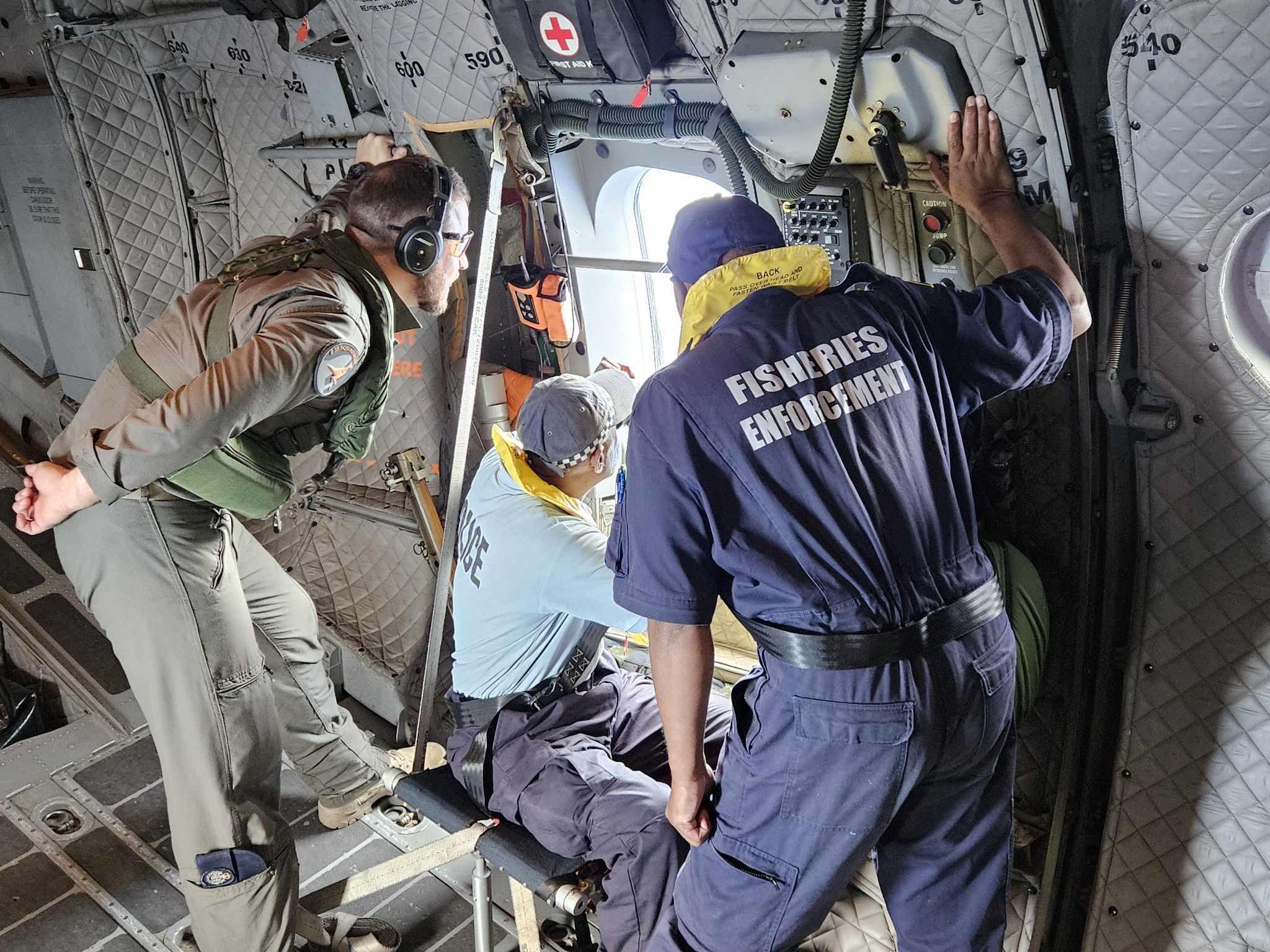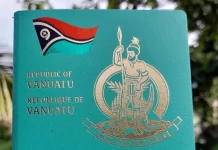Marking a significant achievement, Operation Island Chief, a comprehensive surveillance initiative led by the Pacific Islands Forum Fisheries Agency (FFA), successfully concluded its mission last week.
This operation, covering an expansive area of 18.2 million square kilometres of FFA Member EEZs and high seas, demonstrated the power of collaboration in protecting the Pacific region from illegal fishing activities.
FFA Director General, Dr Manu Tupou-Roosen, emphasised the role of local expertise in fortifying the 12-day Operation Island Chief.
“Island Chief, one of the four annual regional monitor, control and surveillance operations, represents a monumental effort spanning the Pacific waters of 11 participating FFA member nations: Fiji, Federated States of Micronesia, Kiribati, Palau, Papua New Guinea, Nauru, the Marshall Islands, Samoa, Solomon Islands, Tuvalu, Vanuatu, and the high seas,” stated Dr Tupou-Roosen.
This intricate operation engaged nearly 350 personnel from various units including the navy, maritime police, air force, and national fisheries bodies across the Pacific. Bolstered by insights from the FFA Regional Fisheries Surveillance Centre (RFSC) team and supported by organisations such as the Federated States of Micronesia Maritime Wing, Kiribati Fisheries, Royal Solomon Islands Police Force (RSIPF), Samoan Fisheries Department and Maritime Police, Solomon Islands Ministry of Fisheries and Marine Resources, Republic of Marshall Islands Maritime Fiji Navy and Fisheries, Nauru Fisheries, Tuvalu Maritime Police and Fisheries, PNG Defence Force- Maritime Element, PNG National Fisheries Agency, Vanuatu Fisheries and Maritime, US Coast Guard, French Armed Forces from New Caledonia and French Polynesia, New Zealand Defence Force and Australian Defence Force, the operation provided watchkeeping, intelligence gathering, and analysis. This support was critical for targeted surveillance efforts by Pacific member countries.
Dr Tupou-Roosen underlined the importance of regional collaboration, resource sharing, and continuous training in ensuring the success of surveillance operations. “Our Pacific personnel possess substantial experience, making these collaborations vital to our ongoing success,” she noted.
Operation Island Chief aimed to enhance data collation, analysis, and filtering to inform both national and regional surveillance. The operation also aimed to promote coordinated monitoring efforts among member countries in the high seas, objectives that were successfully met during the mission.
Australia, New Zealand, France and the United States, known as the Pacific QUAD partners, contributed to the success by providing aerial and surface surveillance support. Alongside the FFA Aerial Surveillance Programme aircraft, a total of 7 ships, 6 aircraft, and advanced remote sensing detection technology were employed, enhancing the operation’s maritime surveillance capacity. Additional support came from FFA partners including Global Fishing Watch, International MCS Network, Canada’s Dark Vessel Detection (DVD) system, U.S HawkEye 360 system, Starboard Maritime Intelligence system, Pacific Community (SPC) and the Western Central Pacific Fisheries Commission, providing valuable data intelligence analysis and remote sensing capabilities.
Acknowledging the unwavering support from international partners, Dr Tupou-Roosen expressed gratitude to FFA’s partners, citing the long-standing commitment to Pacific surveillance operations.
Over the span of four decades, FFA’s collaborative surveillance operations with member countries and partners have yielded increasing success. The focus has evolved from safeguarding against illegal vessels to overseeing the compliance of licensed vessels with established regulations. Given the vastness of the Pacific region, the combined efforts of numerous partners supplying personnel, assets and technology platforms remain indispensable for sustained success.
SOURCE: FFA/PACNEWS















